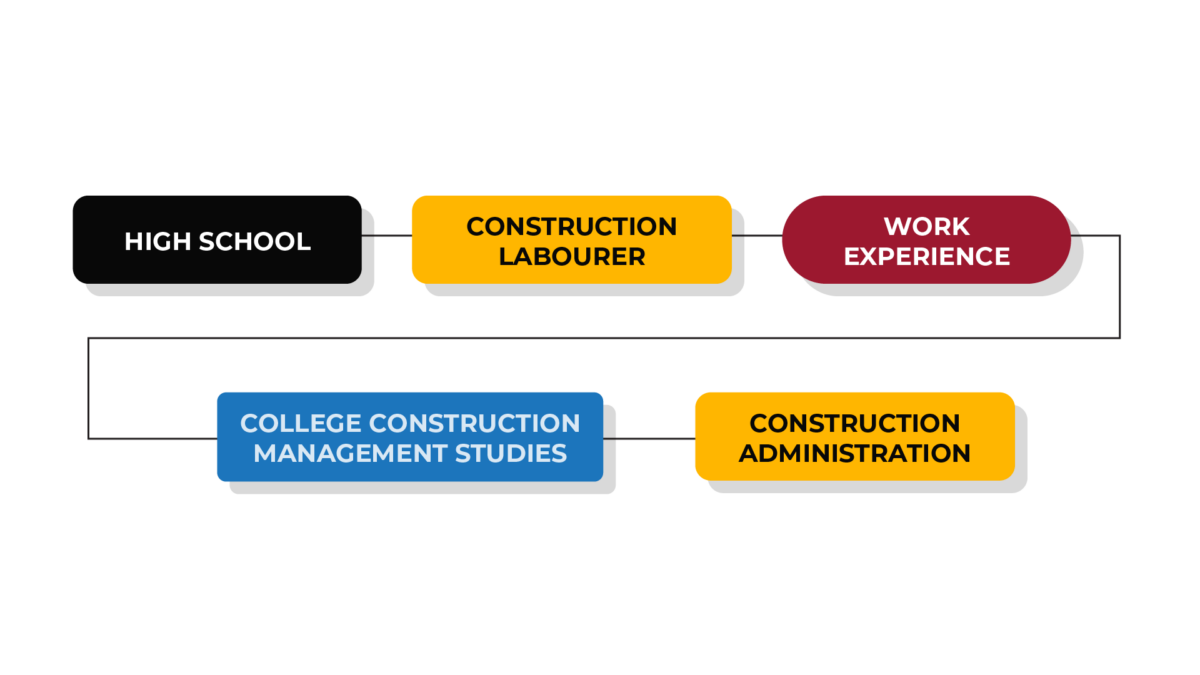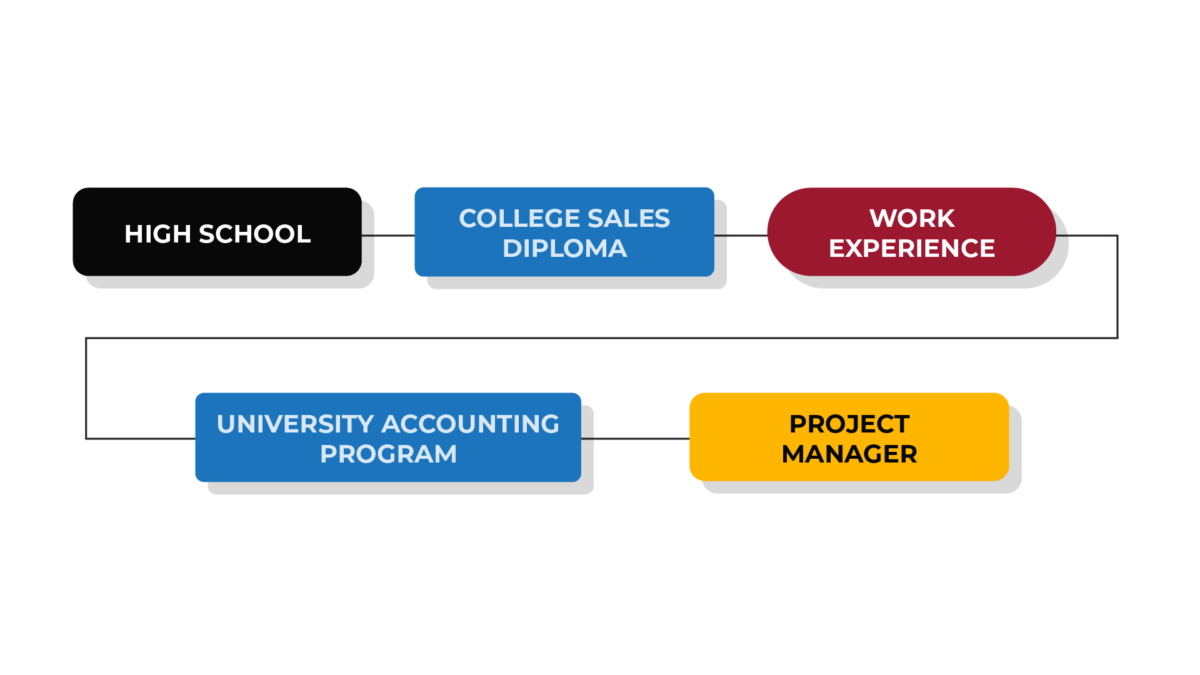Your skills are transferable
The skills you learn for one trade can often lead logically to another. For example:
- Welders, ironworkers and boilermakers all work with similar materials and equipment.
- A crane operator already has many of the skills it takes to become a heavy equipment operator
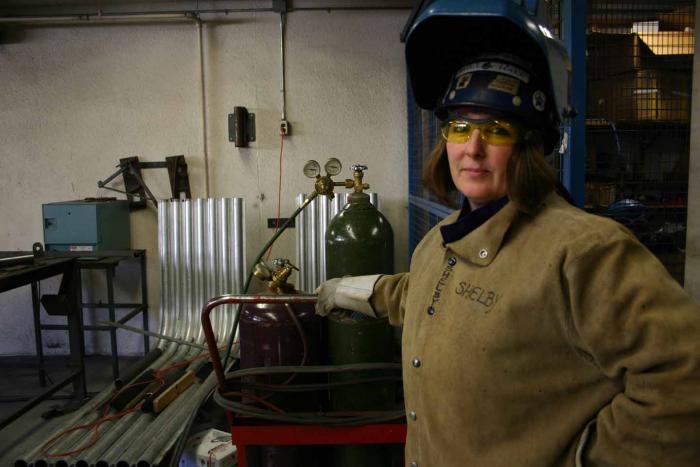
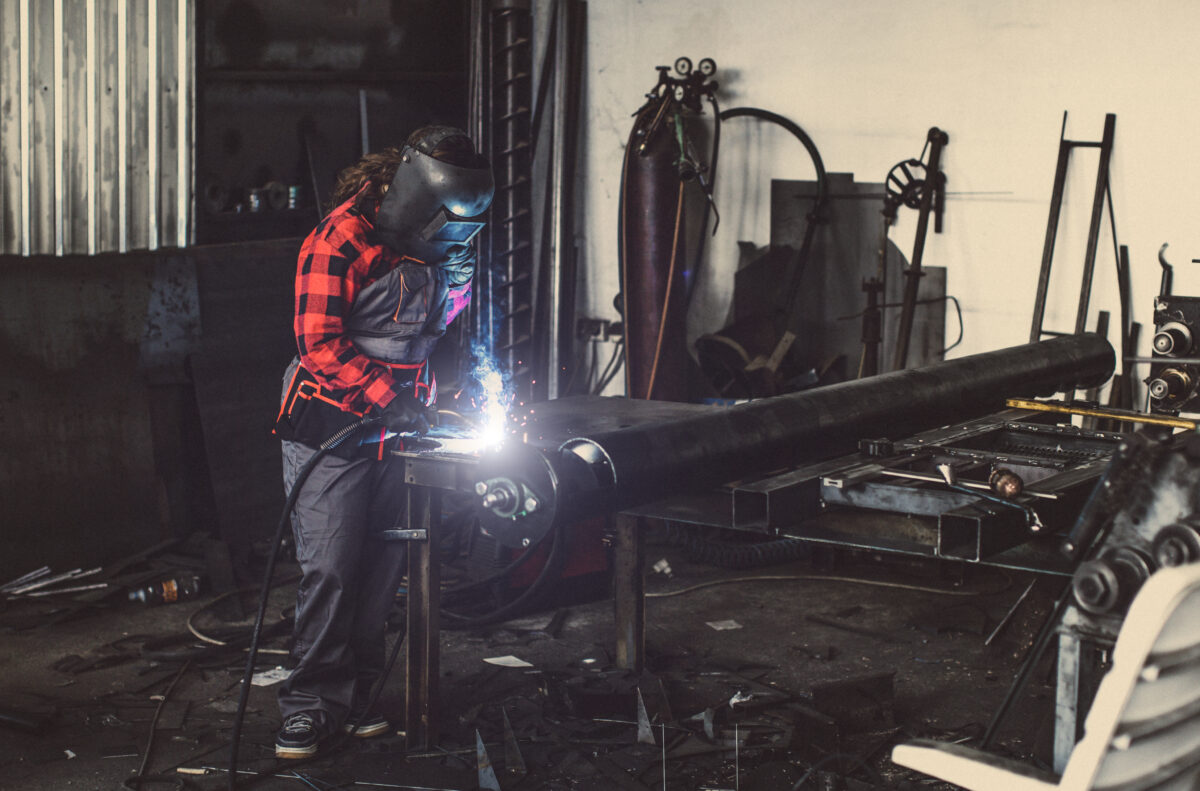
About Red Seal
Red Seal certification allows you to practice your trade anywhere in Canada!
he Red Seal Program uses national standards and includes an Interprovincial Standards Examination that, upon passing, qualifies you for a Red Seal. The Red Seal allows you to practice your trade anywhere in Canada. So if you’ve got a hankering to see this big, beautiful country of ours, a Red Seal is your ticket.
Create your own path
Your experience as a skilled tradesperson can lead to other paths down the road. Whatever path you choose, you’re sure to end up with a fulfilling and rewarding career. Click on the links to see sample career paths.
Education/Training Career Paths
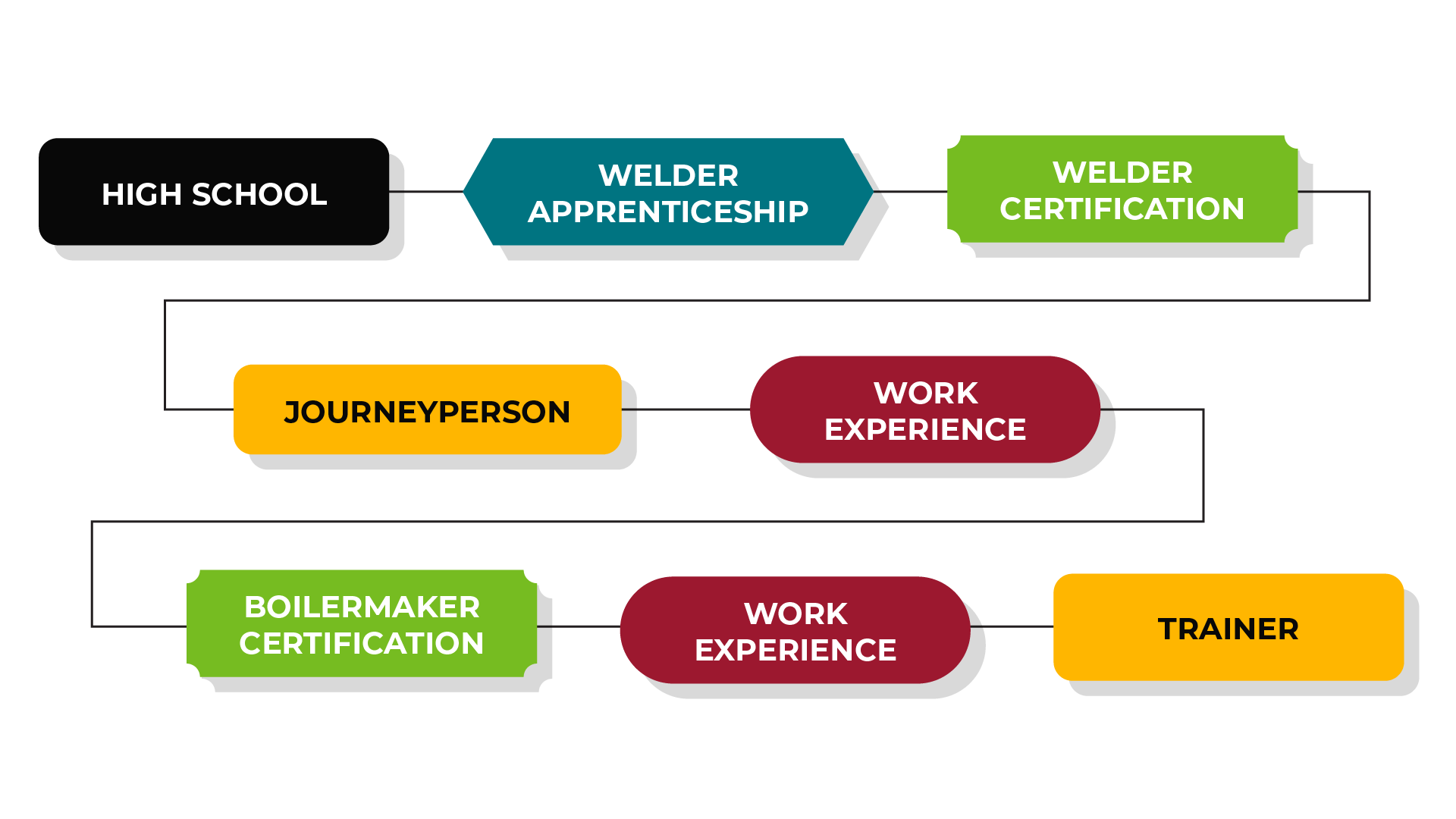
Option 1
Some trades share many of the same skills and knowledge and its possible to move between them without having to go through a second apprenticeship – you can just learn what you need to pass the certification exam. In this example, after being certified as a journeyperson, a welder changes to the related trade of boilermaker. After gaining considerable work experience, she applies to become a trainer and teaches boilermaking courses while continuing her career as a boilermaker.
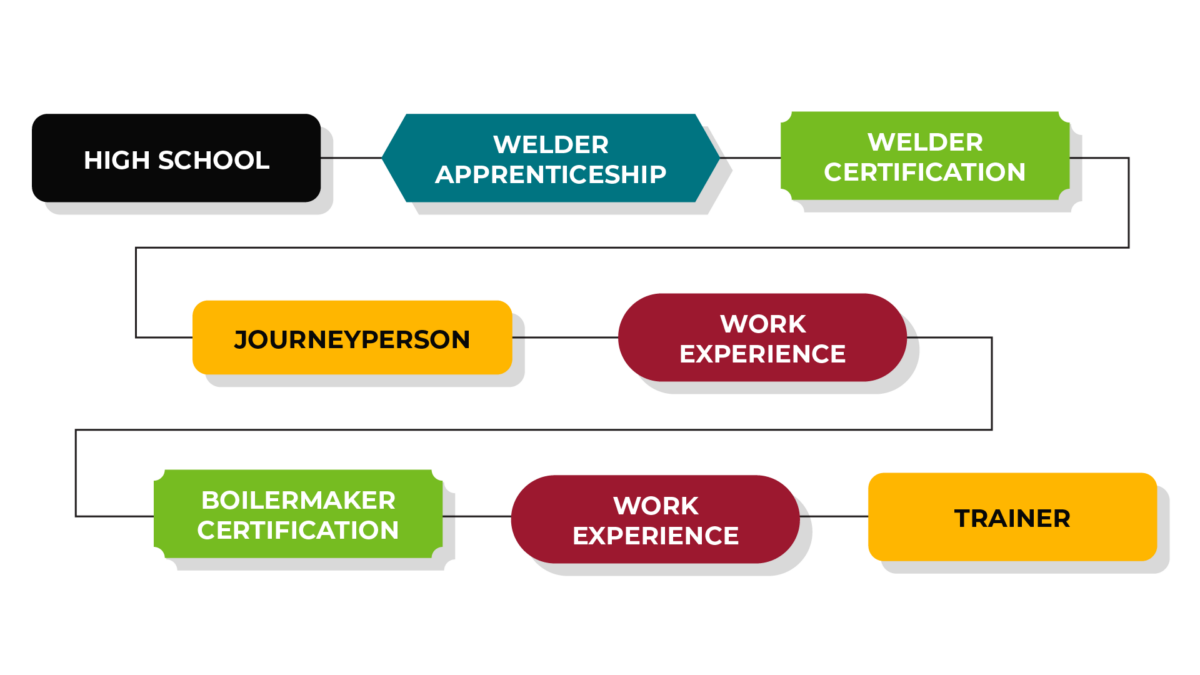
Engineering Career Paths
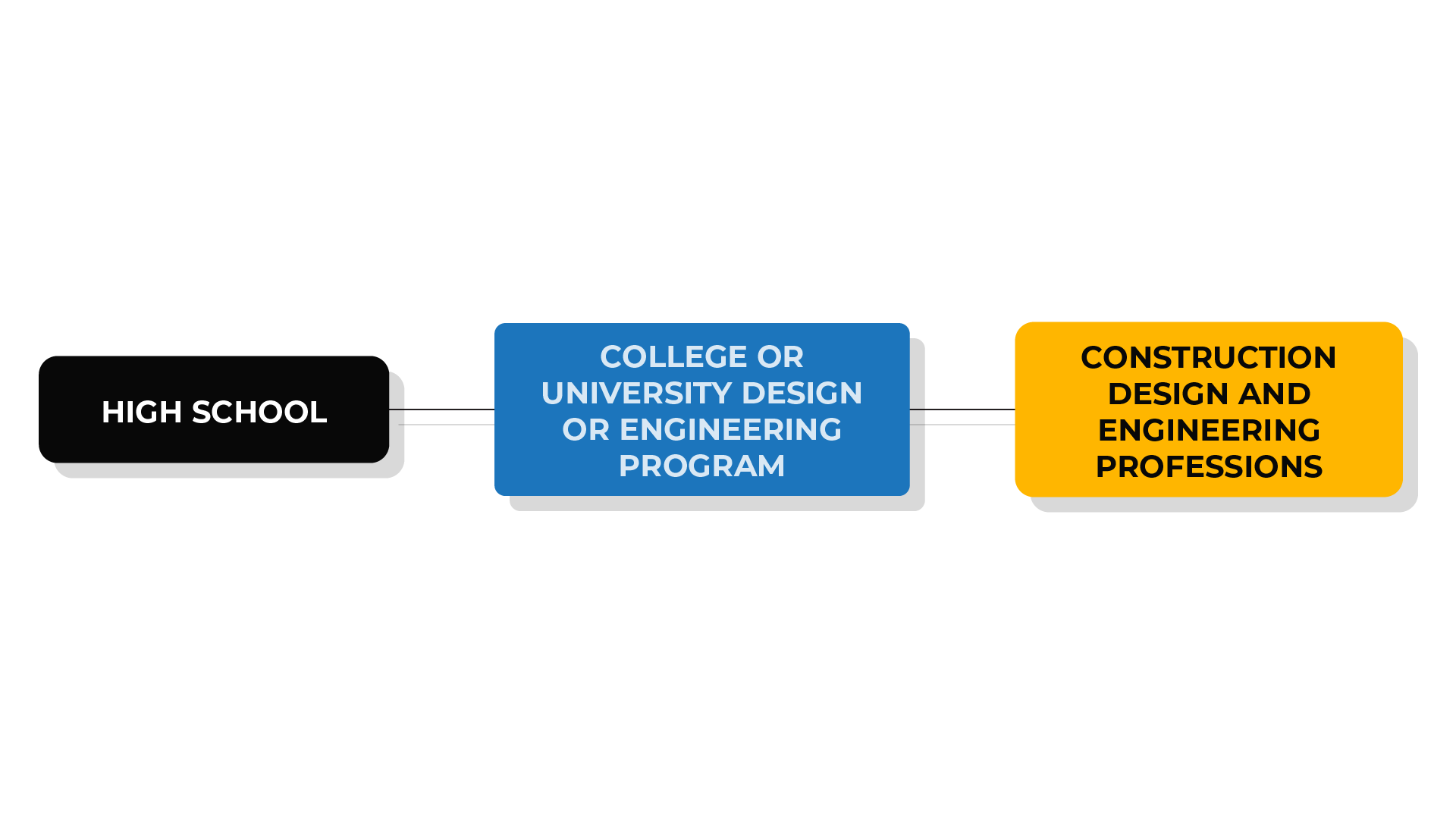
Option 1
You may enter engineering or related careers by taking college or university programs.
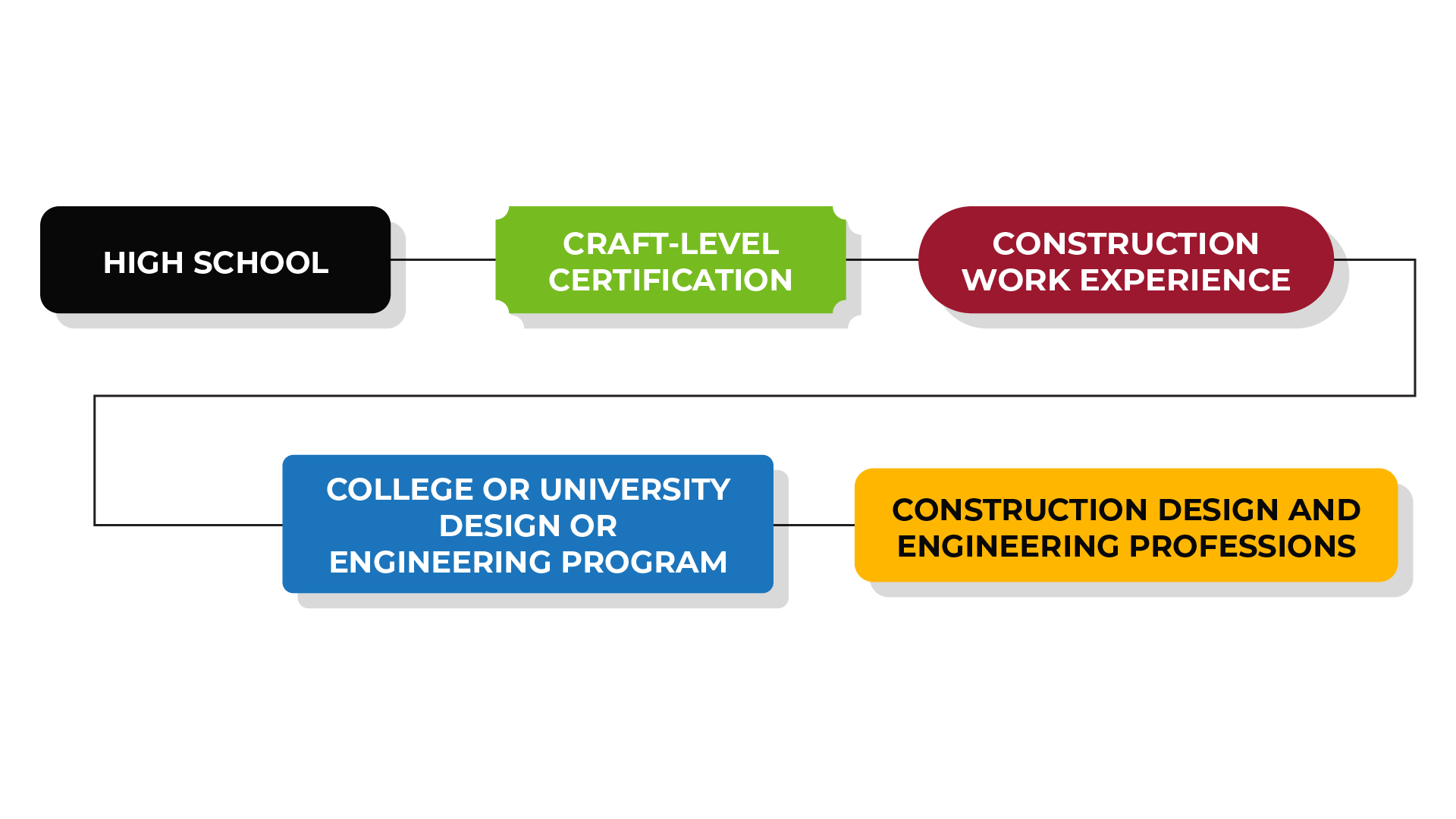
Option 2
But you can also begin in a trade or occupation such as electrician, landscaper or surveyor. Certification and work experience provide a great background if you choose to pursue a diploma or degree in the same field, or in another construction-related trade or occupation.
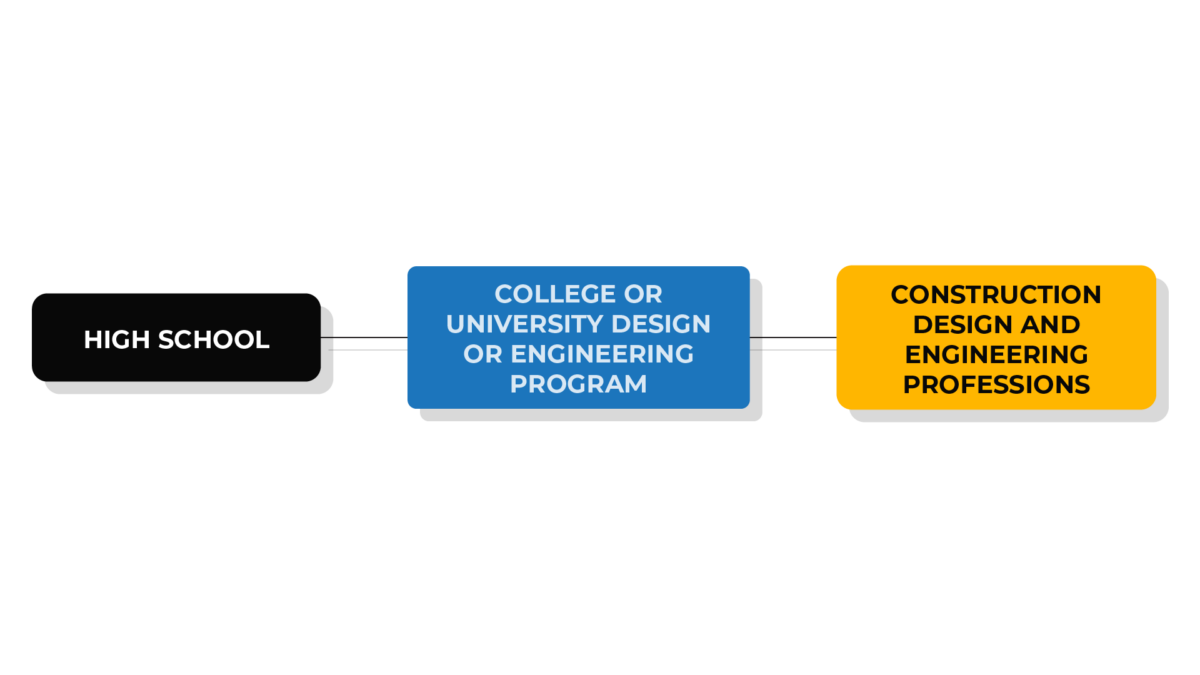
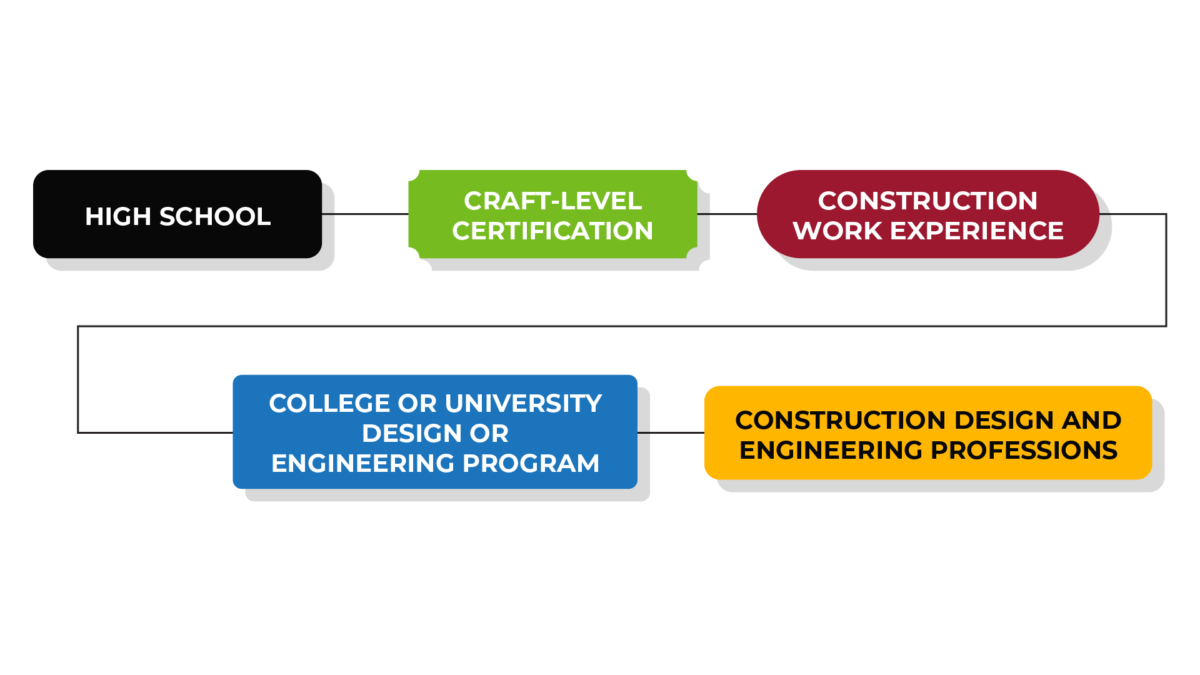
Management Career Paths
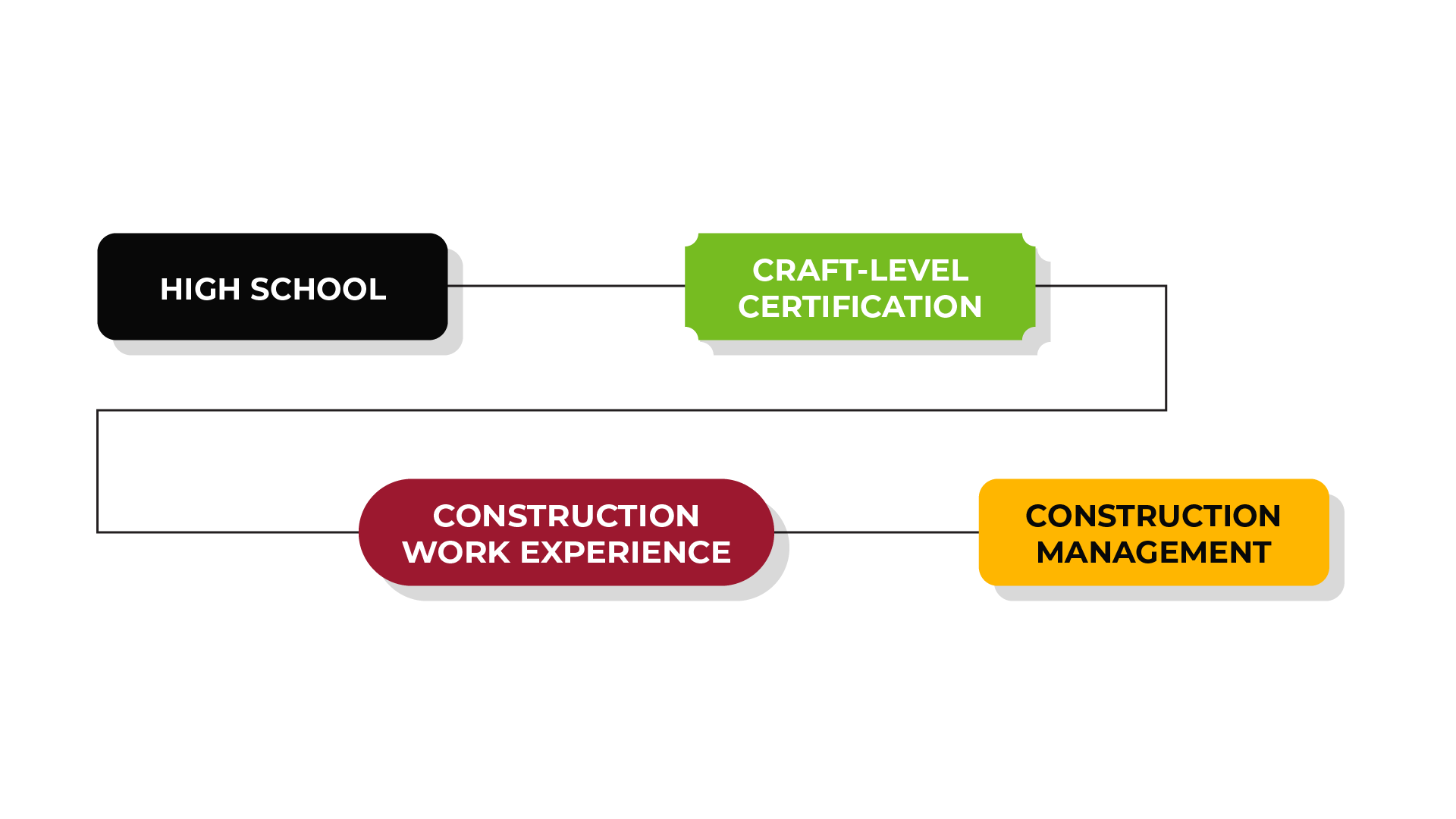
Option 1
Management careers may begin with certification as a construction worker or with on-the-job experience, but in most cases some post-secondary study is essential.
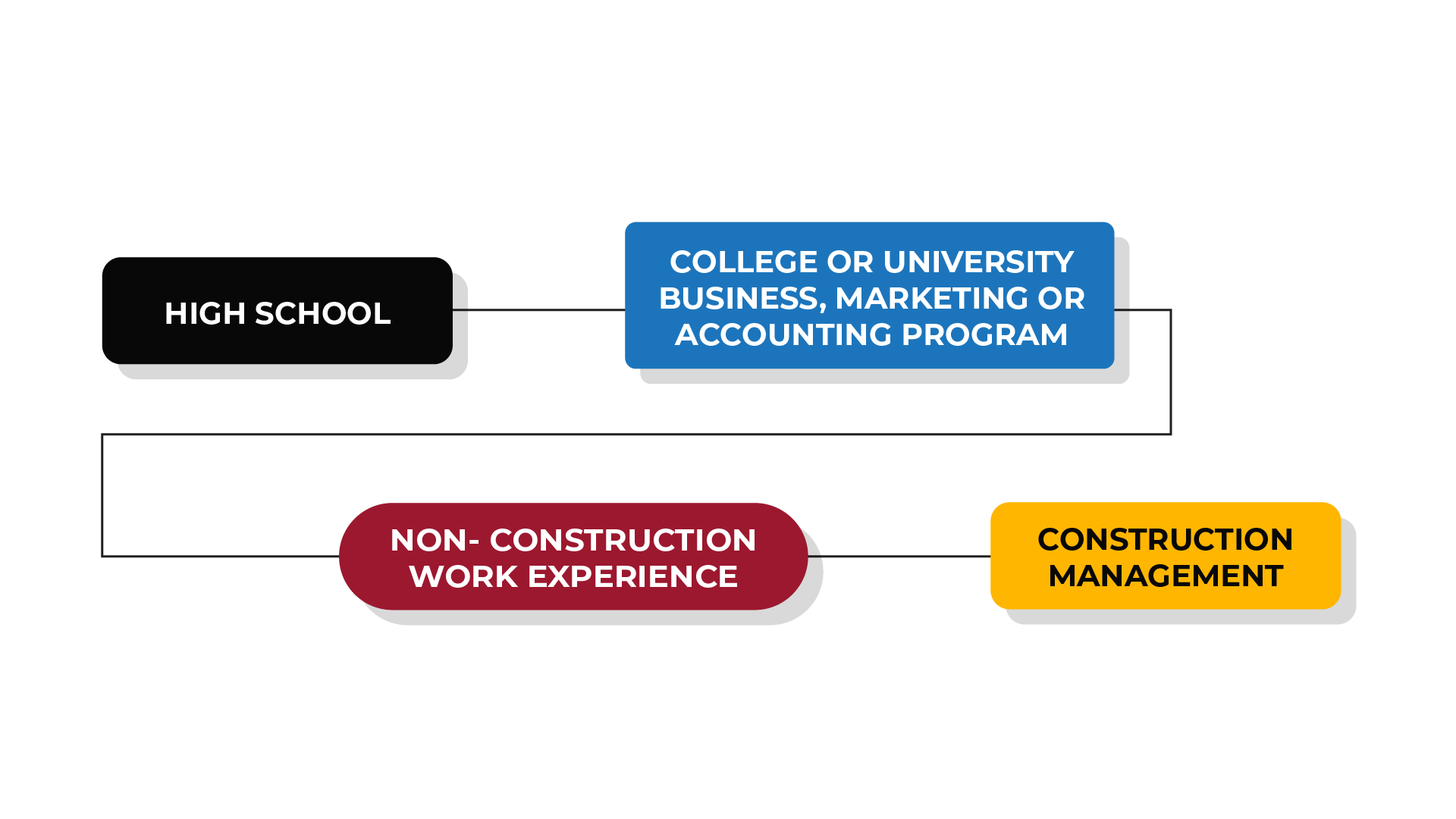
Option 2
Many managers start in unrelated fields such as business, marketing or accounting. Sometimes they work in other industries before discovering construction.
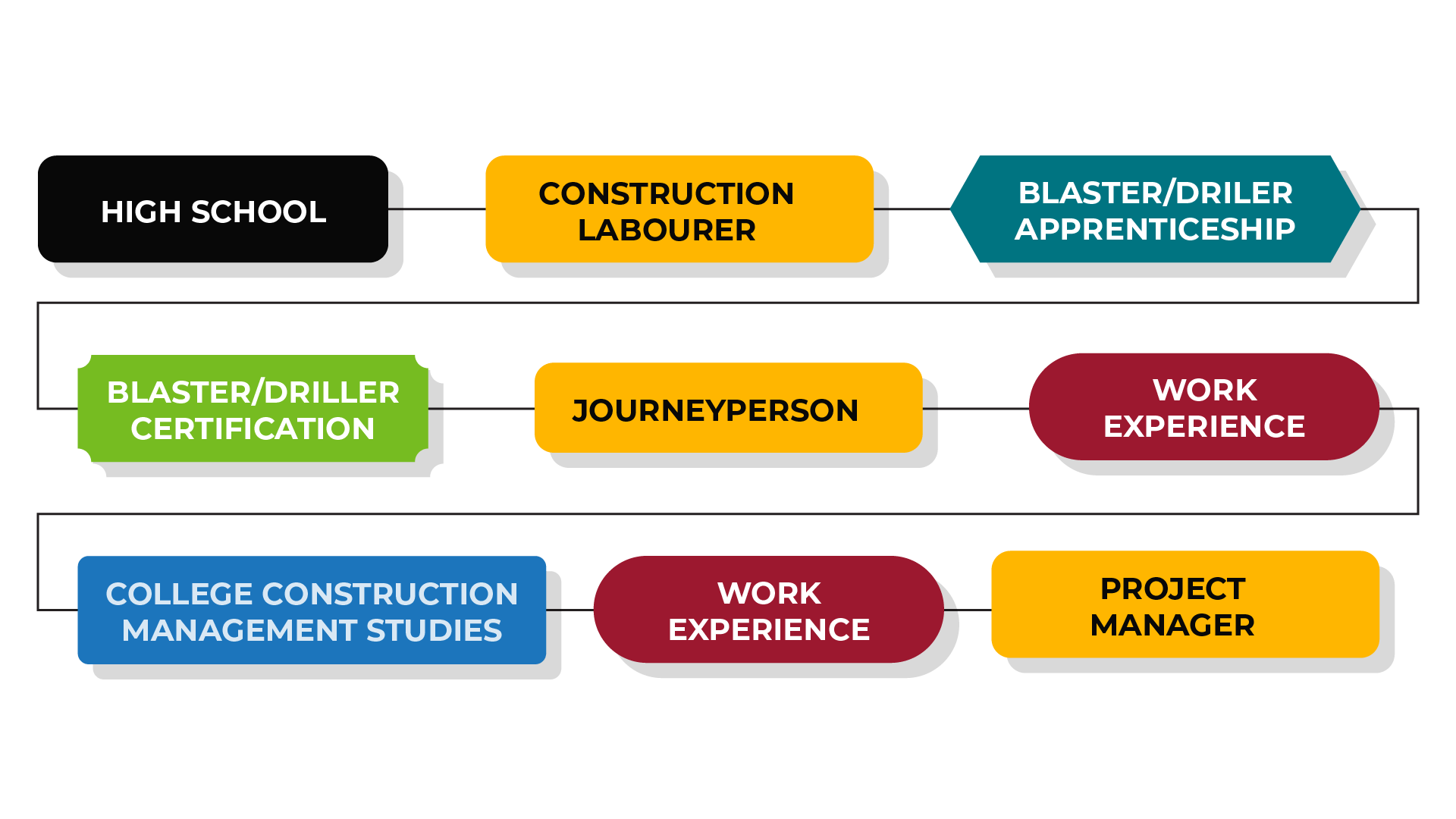
Option 3
Consider this example of an uncertified labourer that went on to an apprenticeship as a driller/blaster. Already experienced on site, she decides to take construction management courses. After proving her abilities in a series of jobs with greater responsibility, she is offered the project manager position.
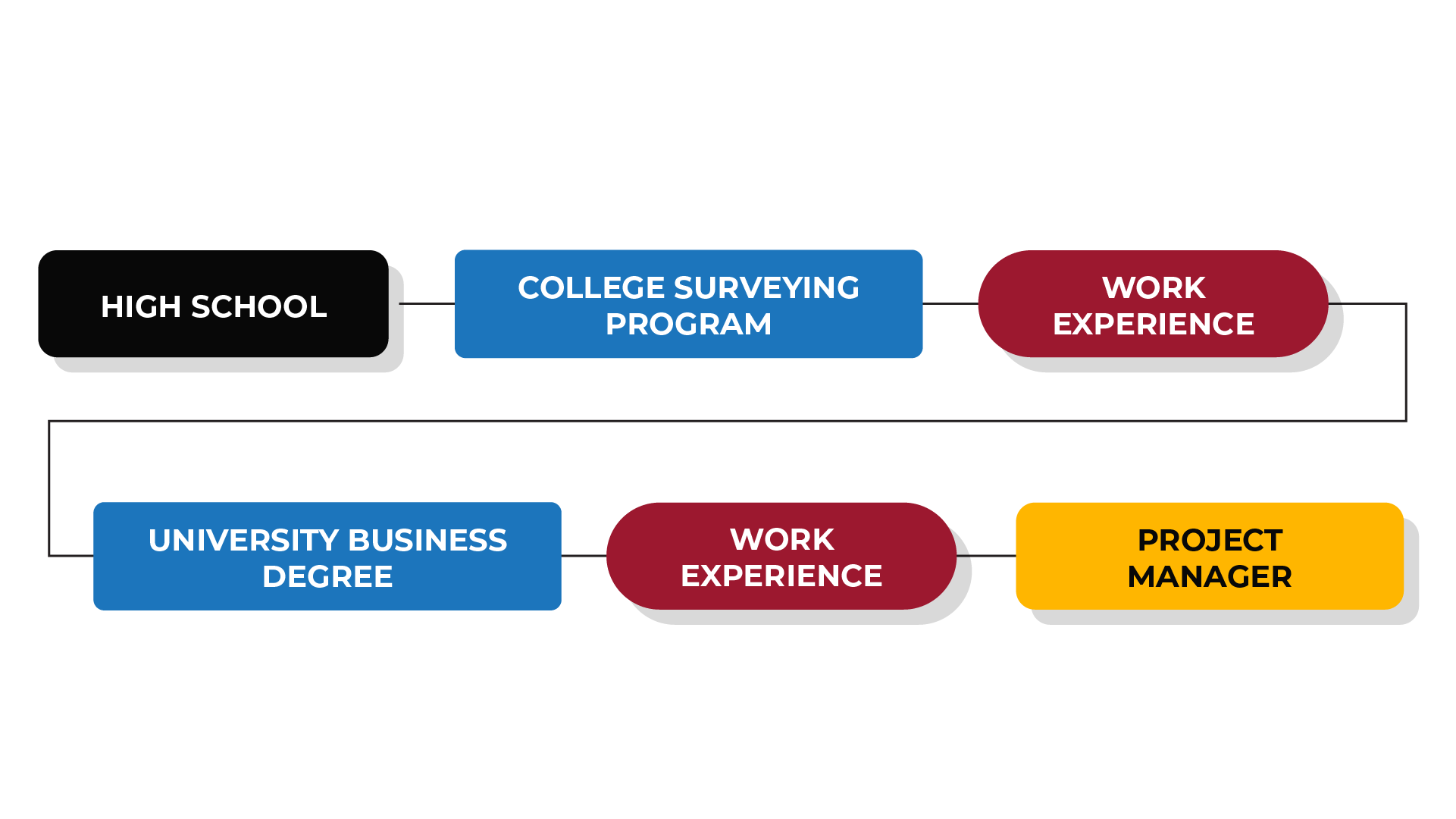
Option 4
In this alternate example, she enters a technical college after high school and studies surveying. After gaining some work experience, she decides to expand her opportunities by taking a business degree at university. After working as a scheduler and assistant project manager, she is offered the job of project manager.
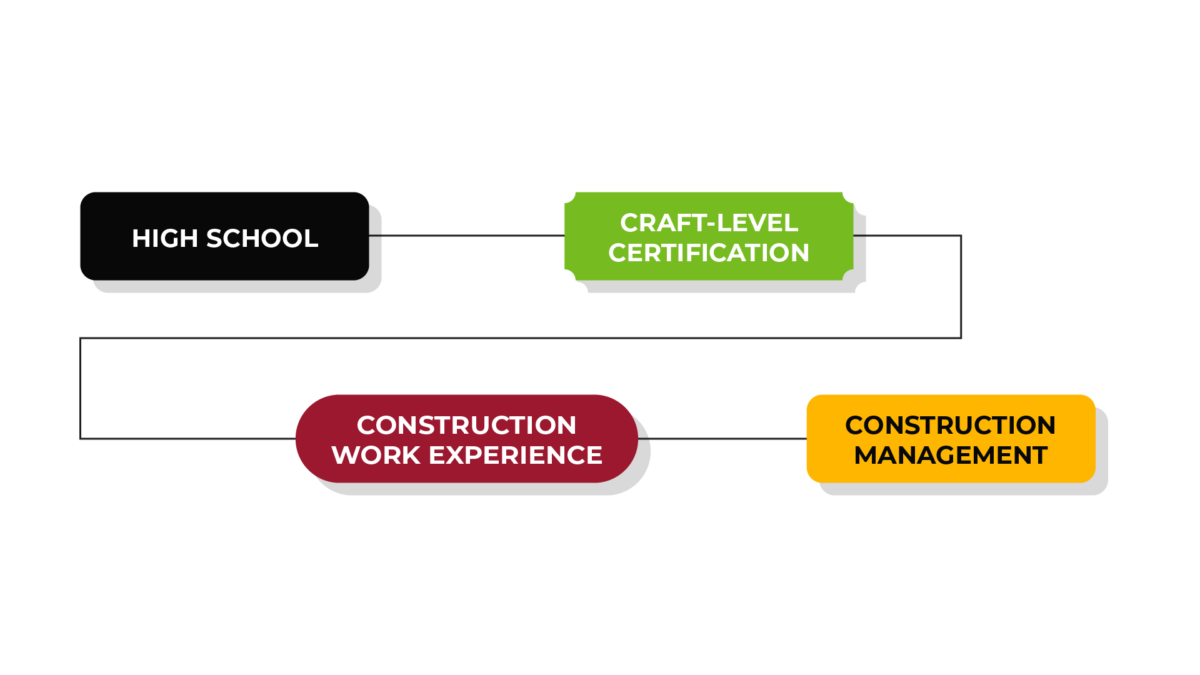
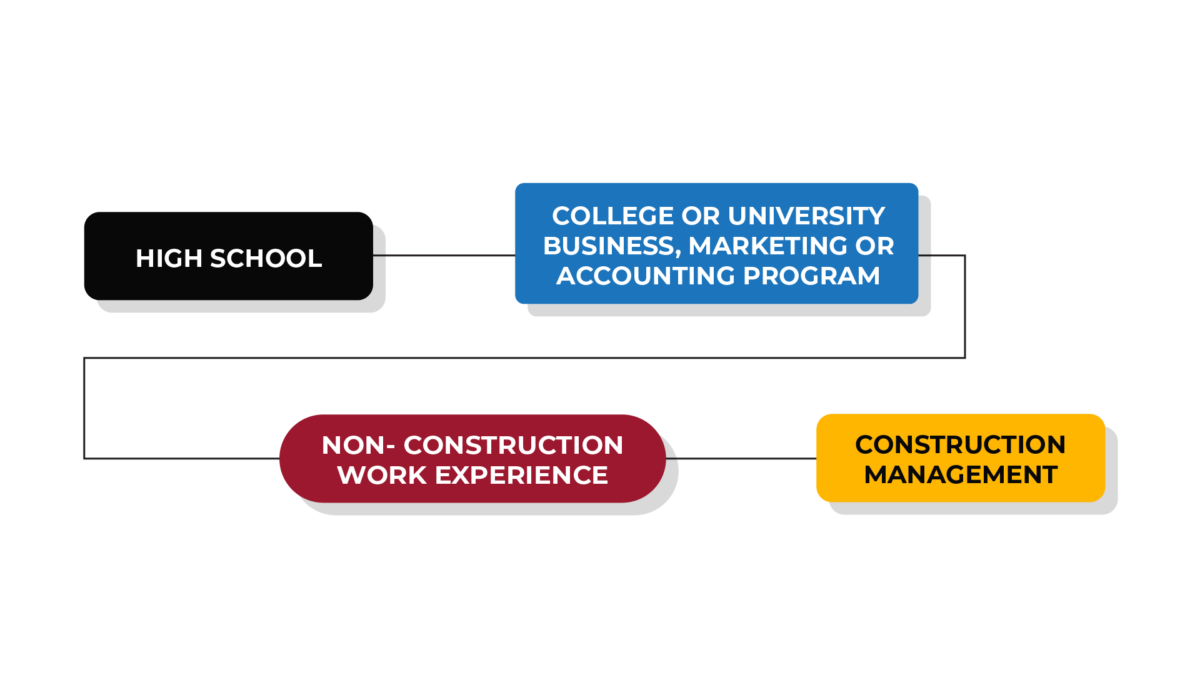
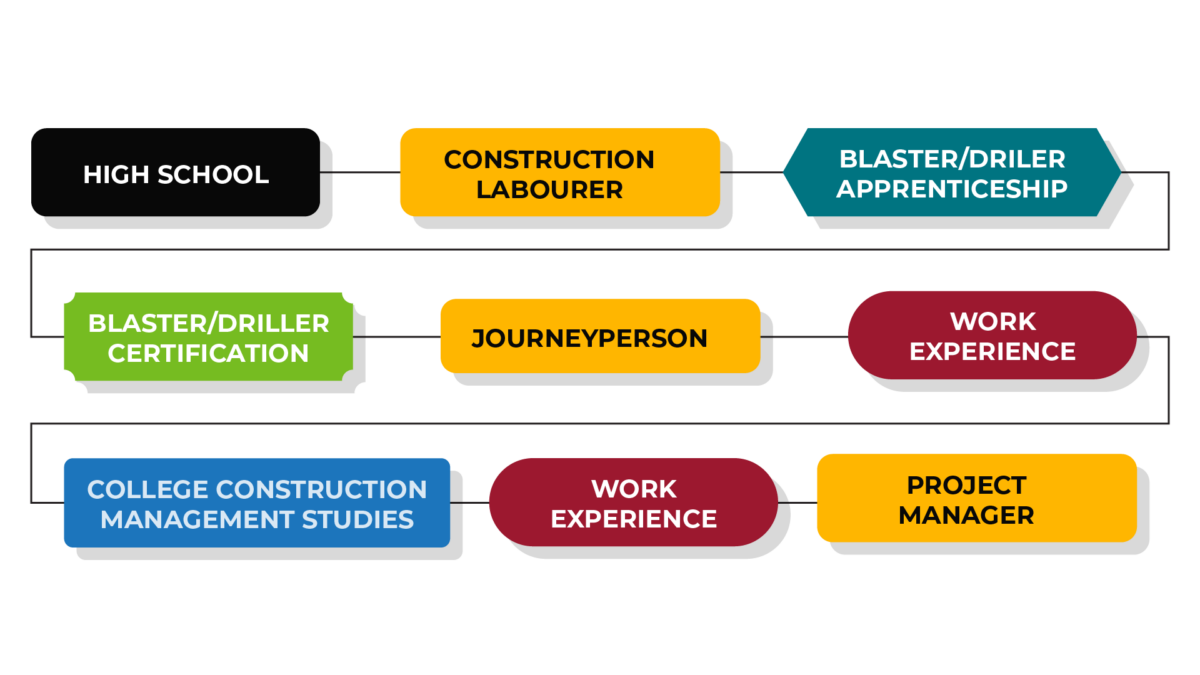
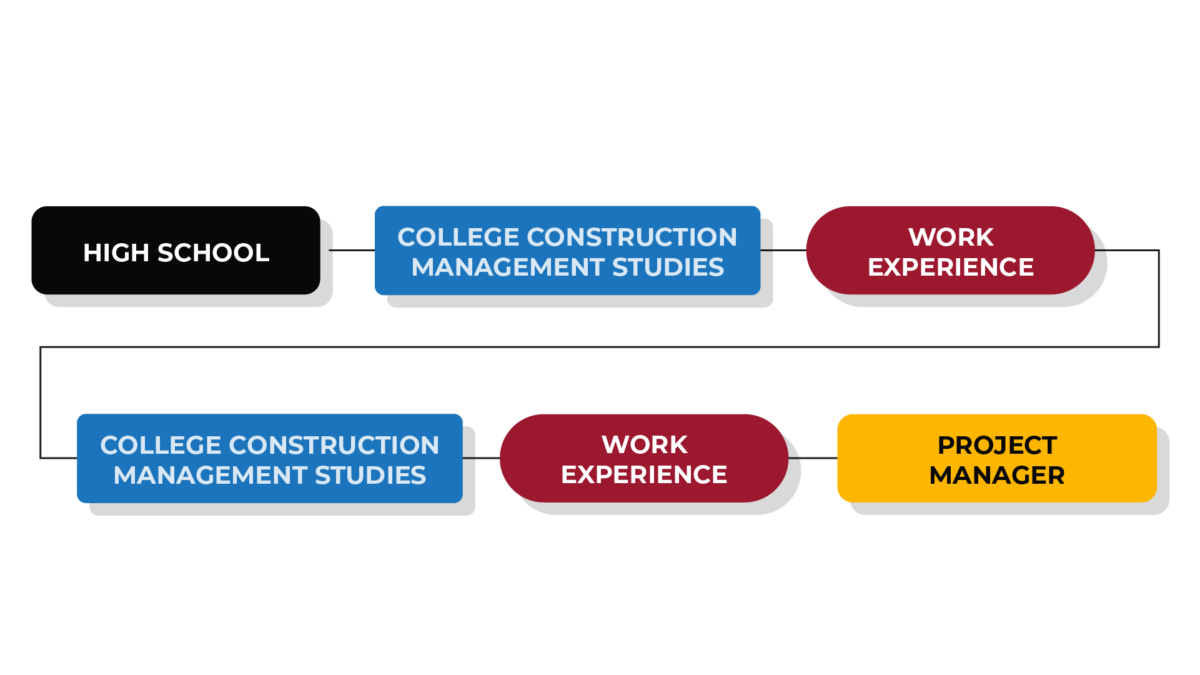
Technical / Administrative Career Paths
Careers in technical and administrative support may develop in a variety of ways. Consider this example of two office managers:
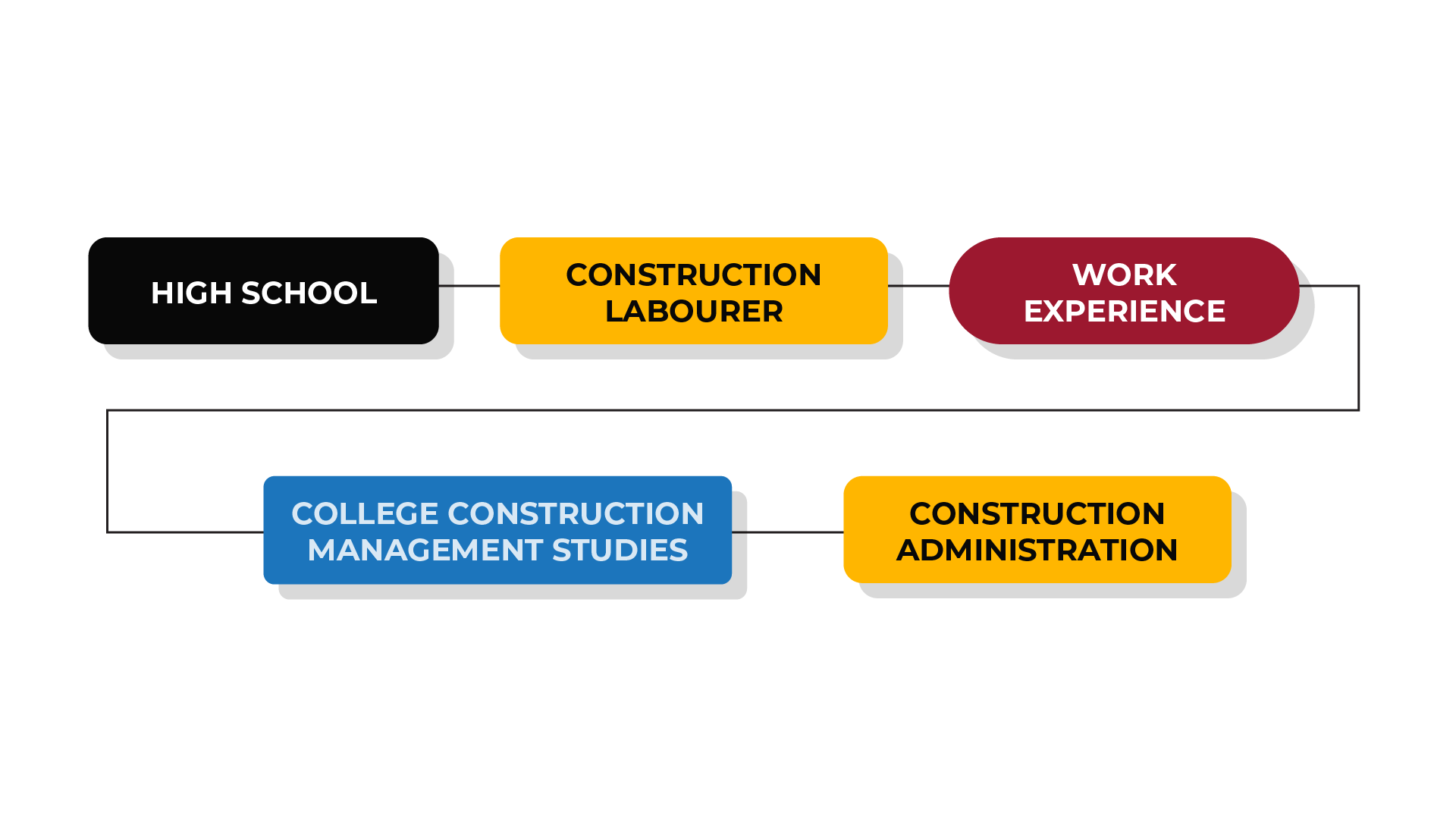
Option 1
One might have a construction background and have worked as a trades helper/labourer before studying construction management and pursuing an administrative career.
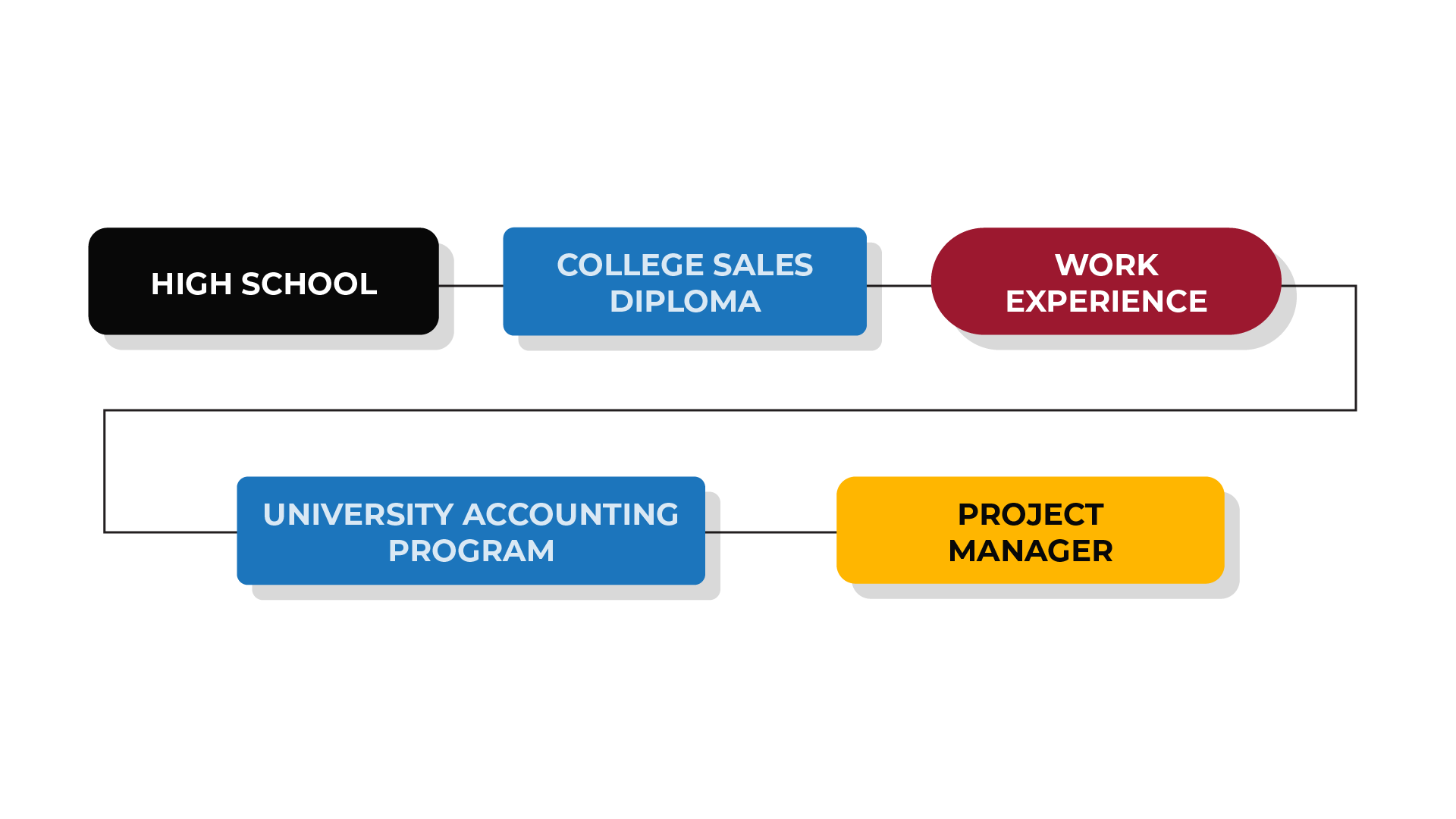
Option 2
The other might have gone to college after high school, received a diploma in sales and, after working in the construction industry for a time, decided to pursue an accounting degree. With her combination of experience and skills, he lands a job as office manager with a home building firm.
